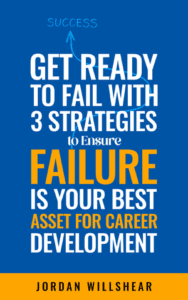As a career-driven millennial, you may have experienced imposter syndrome at some point in your professional journey. You know, that feeling of self-doubt and insecurity that can creep in when you start to question your skills, knowledge, or accomplishments. It’s common, and it’s natural. But it doesn’t have to hold you back. In this blog, we’ll explore five tips for overcoming imposter syndrome as a career-driven millennial.
Imposter syndrome can be a major roadblock to success, especially for those of us who are driven to succeed in our careers. It can make us second-guess ourselves, hold ourselves back from taking risks, and ultimately prevent us from reaching our full potential. But the good news is that imposter syndrome is something that can be overcome with the right mindset and strategies.
Here are 5 tips you can takeaway today to battle imposter syndrome:
- Recognize that imposter syndrome is normal: One of the first steps in overcoming imposter syndrome is to recognize that it’s a common experience, and that it’s not a reflection of your actual abilities or worth. Many successful people have experienced imposter syndrome at some point in their careers, and it’s something that can be overcome with the right mindset and strategies.
- Seek support: Imposter syndrome can be a lonely and isolating experience, but it’s important to remember that you don’t have to go through it alone. Seek support from friends, family, or a professional therapist who can help you work through your self-doubt and insecurity.
- Reflect on your accomplishments: Take some time to reflect on your accomplishments and the skills and knowledge you’ve acquired over the years. This can help you gain a more accurate and realistic view of your abilities, and help you see that you do have the skills and knowledge needed to succeed in your career.
- Practice self-compassion: Be kind to yourself, and remember that it’s okay to make mistakes. We all make mistakes, and it’s through making mistakes that we learn and grow. Practice self-compassion and remind yourself that you’re doing the best you can.
- Set achievable goals: Finally, set achievable goals for yourself and celebrate your progress and accomplishments along the way. This can help you build confidence and momentum, and help you feel more in control of your career path.
Conclusion
Imposter syndrome is a common experience, but it’s something that can be overcome with the right mindset and strategies. By recognizing that it’s normal, seeking support, reflecting on your accomplishments, practicing self-compassion, and setting achievable goals, you can overcome imposter syndrome and succeed in your career as a driven millennial.
Overcoming imposter syndrome can help you:
- Take on new challenges and opportunities with confidence: When you’re plagued by self-doubt, it can be hard to take on new challenges or pursue opportunities that may be out of your comfort zone. But by overcoming imposter syndrome, you can approach these challenges with a sense of confidence and belief in your abilities. This can help you grow and advance in your career, and open up new opportunities for professional development and advancement.
- Build stronger relationships: Imposter syndrome can cause you to be overly self-critical, which can in turn make it hard to form strong relationships with your colleagues. By working to overcome imposter syndrome, you can focus on building positive and supportive relationships, which can help you feel more connected and engaged in your work environment.
- Make a greater impact in your work: When you’re held back by self-doubt, it can be hard to fully engage in your work and make the kind of impact you’re capable of. But by overcoming imposter syndrome, you can tap into your full potential and make a greater impact in your work. This can lead to increased satisfaction and fulfillment in your career, and help you feel more confident and capable in your professional life.
Overall, overcoming imposter syndrome can have a transformative effect on your career, helping you take on new challenges, build stronger relationships, and make a greater impact in your work. It’s an ongoing process, but with the right mindset and strategies, you can overcome imposter syndrome and succeed in your career as a driven millennial.
Invitation for Feedback:
If you’ve experienced imposter syndrome in your career and have strategies for overcoming it that have worked for you, we’d love to hear from you in the comments!


Recent Comments